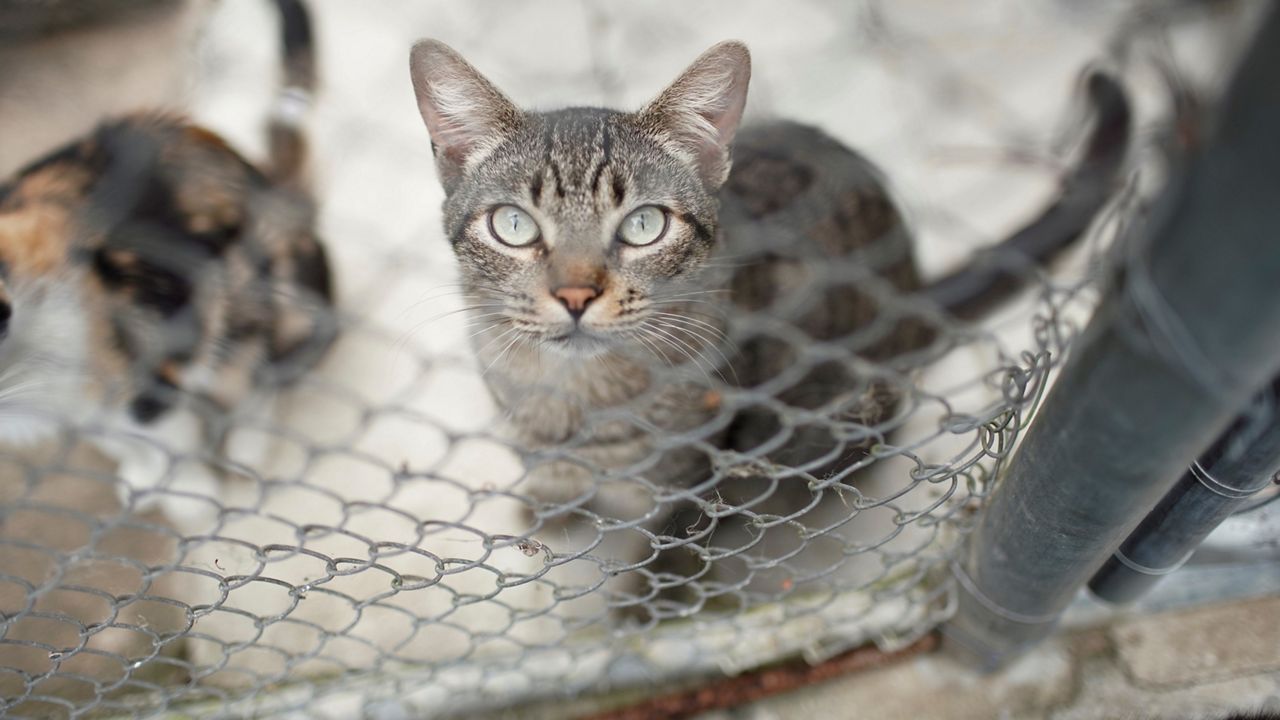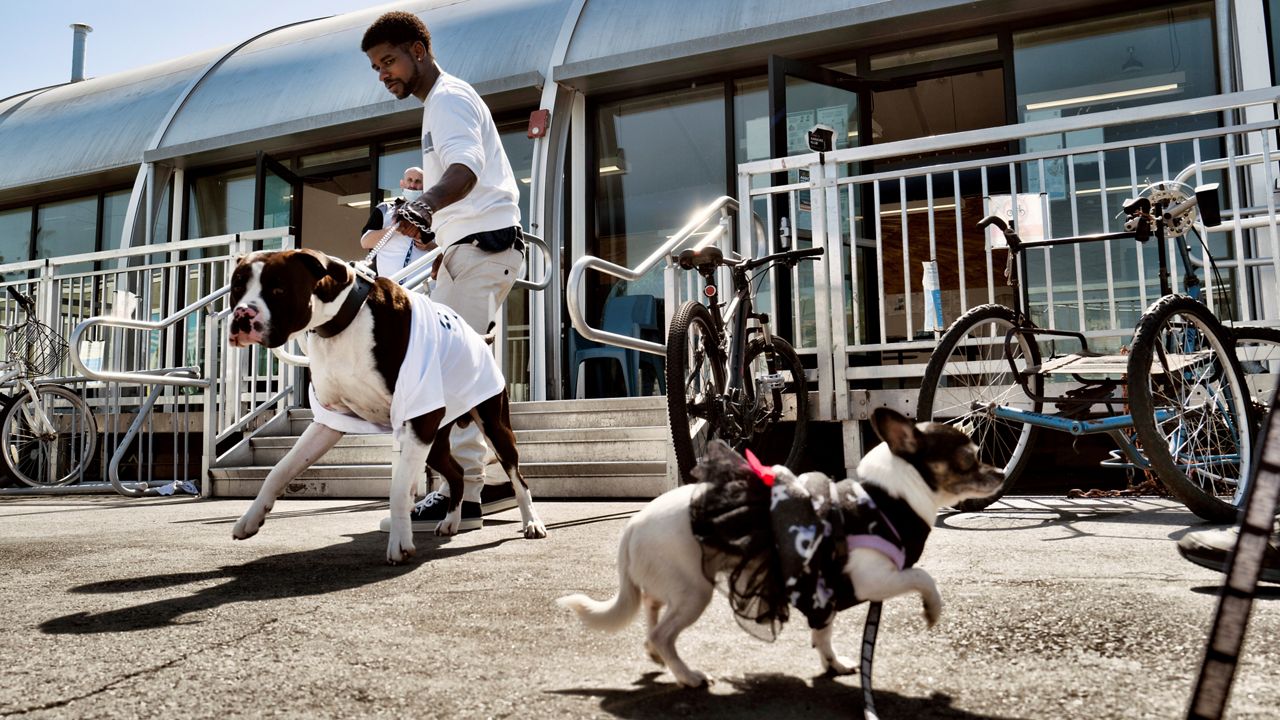TORRANCE, Calif. — There’s nothing more troubling for pet owners like Diana DeArmond than to see her cat, Lucky, sick. But lately, it’s been even harder to get her seen by her regular veterinarian.
“She’d just throw up like more like liquid, not food,” DeArmond said.
She hoped her cat’s condition would subside, but it persisted. In hopes of finding out what was causing Lucky to feel ill, DeArmond called the vet only to find out it would take about two to three weeks before Lucky could be seen.
“It’s stressful. Like, what are you going to do?” DeArmond said.
Veterinarian offices operated as essential businesses during the early months of the pandemic, limiting care to mostly urgent cases, according to the American Veterinary Medical Association. Now, vet offices are working through that backlog.
Due to COVID restrictions, many vet offices have pet owners wait outside or by their cars until they get an update call from the vet. The new process, according to the AVMA, has caused about a 25% decrease in productivity across practices in 2020.
Veterinary emergency rooms are also feeling the pressure of pets in need. Typical wait times should range between two to three hours. However, Dr. Avia Ben-Simon, a veterinarian with ACCESS Specialty Animal Hospitals, believes the increase in demand is leaving patient families waiting much longer.
“Wait times on average are six to eight hours and sometimes we have to close the ER and only see stats, which means they are dying,” Dr. Ben-Simon said.
Dr. Ben-Simon said a few factors are causing the surge in demand. For example, more pets being adopted and needing care, a shortage of veterinarians in the profession and pets missing regular checkups. Now, as restrictions have loosened, many pet owners are booking appointments to get their pets seen. Vet practices were often the go-to places for sick pets, but to meet the demand and expedite critical cases in the emergency room, ACCESS opened two urgent cares. It is a fairly new concept in the vet medicine world to treat less critical cases like ear infections, vomiting, limping and allergic reactions with appointments in 48 hours or less.
It is an option that is helping to reduce the amount of time ACCESS’ emergency room is in the red tier — where wait times are at their peak.
“I do get a lot of clients that they do not have a vet. So, the chances of them ever getting fit into a vet is much lower because they are going to prioritize their current patients. So, once you get a pet, establish a relationship with a GP,” Dr. Ben-Simon said.
She also recommends booking out appointments for routine checkups, dental exams and more.
After seeking care, DeArmond’s cat, Lucky, was ultimately diagnosed with having cancer. A process she is now seeking treatment for. She said without having the urgent care option, her cat might have gone without care much longer.
“Not knowing what was wrong and what we would have to go through to get to the diagnosis, I don’t even know if my vet would have been able to do all that. He probably would have had to send her out,” DeArmond said.
While she is hoping to have her cat Lucky around in good health, she is also grateful to know she can take her pets somewhere to be seen when they need it the most.











